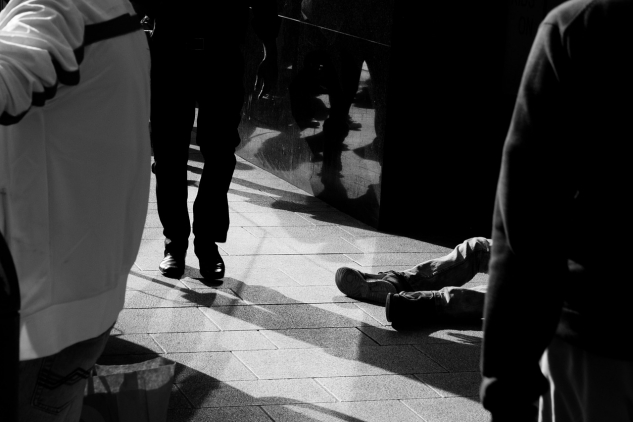
New report draws links between homelessness and modern slavery
A new report by the homeless charity The Passage, and commissioned by the Independent Anti-Slavery Commissioner, highlights that rough sleepers in London are at risk of becoming victims of modern slavery. The report entitled ‘Understanding and Responding to Modern Slavery within the Homelessness Sector’ is the first specific report outlining the risks and challenges to the homeless sector and victims of modern slavery. The report found that homeless people are vulnerable to exploitation by rogue employers offering work and accommodation, and it found that victims of modern slavery are at risk of homelessness and destitution due to lack of follow-on services.
While the links between homelessness and modern slavery have long been known by NGOs, there had been little hard evidence available to support that claim. However, the research conclusively shows that 64% of homeless organisations had come across potential cases of modern slavery. Drawing on results from surveys, focus groups and qualitative interviews with service providers, the report makes 12 recommendations to improve the coordination of the homelessness and modern slavery responses, including:
- developing closer working relationships between local authorities and the police to raise awareness of modern slavery
- improved data collection to understand links between homelessness and labour exploitation
- awareness raising among homeless communities to understand the risks of exploitation
- long-term support provision for victims
Focus groups conducted during the research highlighted that a key strategy of traffickers is to target the vulnerable and take advantage of their support needs. The London Metropolitan Police Modern Slavery and Kidnap Unit detailed an operation in which they attended various soup runs for homeless people in central London, where they witnessed guests being approached with offers of work. There is now conclusive evidence that homeless communities are vulnerable to recruitment for labour exploitation.
Modern Slavery in the UK
In the UK there are an estimated 10,000-13,000 victims of modern slavery. Victims of trafficking are highly vulnerable when leaving a situation of exploitation, and often require a variety of supports to ensure their safe reintegration and recovery, including accommodation, counselling, medical treatment, and access to education and employment opportunities. However, at the moment the National Referral Mechanism for victims of trafficking —the government support system offers offers limited support which does not provide for the long-term needs of those who have been trafficked, many of whom are highly vulnerable. As a result, victims risk destitution after the initial 45-day recovery and reflection period, and are therefore highly vulnerable to re-trafficking and further exploitation.
FLEX has consistently called for sustainable long-term and unconditional support for victims of trafficking. FLEX’s Pro-Act project, which examined identification and support mechanisms for victims of trafficking across the EU, found that the risk of re-trafficking as a result of destitution and desperation is substantial. Move-on support, including access to safe accommodation, is needed to reduce vulnerability to destitution and prevent re-trafficking. The need for sustainable support for victims of human trafficking, regardless of immigration status, including access to safe and adequate accommodation, was a central recommendation of the Pro-Act project. Victims require on-going support with sufficient move-on options to guard against further vulnerability and achieve long-term recovery. However, there are currently no move-on options for victims of trafficking and modern slavery and victims are abruptly left without support.
Recognising Human Trafficking
In their work with vulnerable and exploited workers the Labour Exploitation Advisory Group (LEAG) report that frontline services struggle to recognise and identify victims of human trafficking. This is consistent with the findings from The Passage report, which found that training is a key issue with only half of survey participants receiving training on the indicators of modern slavery. Although information booklets, such as those provided by FLEX, are being used by homeless staff as guidance documents in the identification of modern slavery, significant knowledge gaps remain.
The UK Government must do more to meet the short and long term needs of victims of trafficking and modern slavery. This includes developing closer relationships between services and the police to build awareness of the indicators, and ensuring that the rights of victims are on a statutory footing, thereby guaranteeing protections. Without the necessary support trafficked persons will continue to fall through the cracks.
Read The Passage report here; read the Pro-Act report here.
